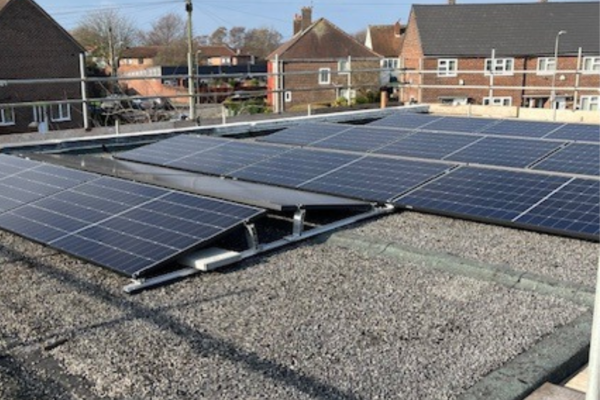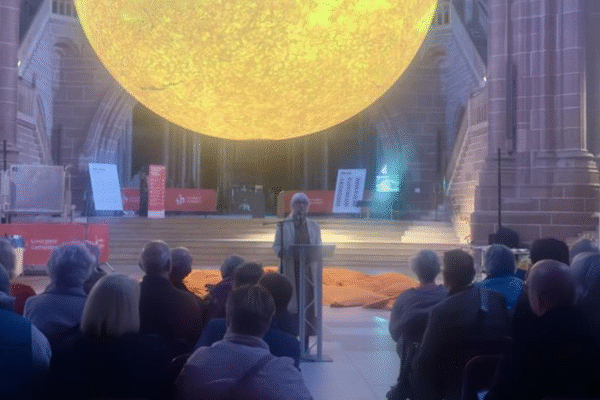When St Luke’s and St Jude’s in Toxteth first completed their Energy Footprint Tool, they discovered they were one of the higher carbon users in the Diocese, largely because their buildings were in regular use for both worship and community activities. After seeing this result, the church realised they had to make changes.
“We realised we could make small, meaningful changes straight away,” said Revd Jonty, Vicar of St Luke’s and St Jude’s.
The team began with simple but effective steps such as improving communication about energy usage, placing notices around the building to encourage careful use of heating and lighting and reminding people to turn them off, setting heating schedules, and installing Hive smart controls so the heating was only on when the buildings were being used. These actions have already made a significant impact on reducing the church’s carbon footprint and managing costs.
Alongside these practical measures, the church began working with the Diocese Net Zero Team to progress towards the Bronze Eco Church Award. This process involved taking a close look at all areas of church life, from worship and teaching to land use, transport, and waste disposal.
The church commissioned a building feasibility study to explore longer-term solutions such as improving insulation, adding solar panels, and installing a more efficient boiler. However, when the building’s flat roofs began to fail, priorities had to shift.
“The roof became our biggest challenge,” Jonty explained. “But the feasibility study helped us plan the repairs in a way that was both practical and sustainable.”
Thanks to determined fundraising and external support, including £5,000 from the Diocese’s Quick Wins fund, the church raised 75% of the cost. The roof repairs were completed earlier this year, including upgraded insulation that now meets modern building regulations and eco standards.
St Luke’s and St Jude’s have also been tackling food waste and community need through three weekly food markets. One of these, held on Mondays in partnership with Zero Waste Liverpool, who redistribute food that would otherwise go to local landfill. Two additional markets on Wednesdays and Fridays follow a food club model, offering affordable groceries to local families.
In the coming months, the church hopes to use its raised planting beds to grow seasonal fruit and vegetables for the markets, further connecting their environmental action with community support.
“The journey to Net Zero can feel daunting,” Jonty reflected, “but we’ve learned that every step, no matter how small, makes a difference. Working together with the Diocese team has shown us that sustainability isn’t just about buildings; it’s about how we serve our community and care for God’s creation.”



